Renuka Devi

Subscribe to read full article
This section is for paid subscribers only. Our subscription is only $37/- for one full year.
You get unlimited access to all paid section and features on the website with this subscription.
Not ready for a full subscription?
You can access this article for $2 , and have it saved to your account for one year.
- Real Name: Khurshid Jehan/ Begum Khurshid Mirza
- Born: 4 March 1918 (Aligarh, British India)
- Died: 8 February 1989
- Primary Cinema: Hindi
- Parents: Waheed Jahan Begum and Sheikh Abdullah
- Spouse: Akbar Mirza
- Children: Shabnam, Lubna Kazim, Sumbul
“Bombay Talkies have found another Devika Rani… her performance has that distinctive grace and poise which can only be associated with a lady of culture and education.” Thus did Baburao Patel of FilmIndia (January 1939 issue) magazine praise Begum Khurshid Mirza, an educated, avant-garde Muslim woman, who flouted tradition to act in Hindi films in the pre-Independence era. Introduced to Indian cinema by Devika Rani of Bombay Talkies under the screen name Renuka Devi, she would act in films such as Jeevan Prabhat (1937), Bhabi (1938), Bhakti (1939), Bari Didi (1939) and Naya Sansar (1941), also performing as a leading lady in box office hits such as Sahara (1943), Ghulami (1945) and Samrat Chandragupta (1945). She also sang for some of her films. A dedicated housewife, a successful actor, an influential social worker, a writer, all at the same time, she not only had a prosperous career in the film industry of united India as Renuka Devi, and an enviable marriage with a senior police official that stretched over 35 years, but also a late innings as a character actor on Pakistan television, where she played some unforgettable roles. Bold and beautiful, she broke the mould in more ways than one, a true woman of substance, as her memoirs are titled.
She was born Khurshid Jehan in 1918 to Waheed Jahan Begum and Sheikh Abdullah, a well-known liberal-minded couple. Her father, a Hindu by birth named Thakur Das, hailed from Kashmir. He was drawn to Islam, and more specifically the progressive ideas of Sir Syed Ahmed, founder of Aligarh Muslim University. A practicing lawyer and philanthropist who was keen to bring education and enlightenment to Muslim women, her father along with her mother would establish the Abdullah Women's College of Aligarh Muslim University. Khurshid would also receive her education from the same institution.
In 1934, she married a police officer Akbar Mirza, with whom she would go hunting, play sports and arrange picnics. She would also act in films, something quite unheard of for a woman of her social standing at the time. As she would later reveal in an interview, “I was on a vacation with my husband. We were in Mumbai and visited a studio to see how shooting is done. Himanshu Rai, who was shooting there, convinced my husband that I should act in his film. My husband consented. That is how it all happened. Himanshu Rai and his wife treated me like their own daughter. My father was liberal. He had no issues but he faced lot of criticism on this score.”
Incidentally, her brother Mohsin Abdullah worked in the production department of Bombay Talkies at the time, and also featured as an actor in the studio’s films such as Chal Chal Re Navjavan (1944), and Ziddi (1948).
As Avijit Ghosh writes, “Back in the Thirties, acting in films was not considered an honourable profession for anybody. And for a married woman from a well-educated and respectable upper-middle class Muslim family, it was forbidden to even think about it. But Khurshid Mirza, the daughter of the founders of the Aligarh Women’s College, the wife of a police officer and already a mother of two, was too free-spirited to be tied down by any social norm. She took the plunge and soon a star named Renuka Devi was born.”
Shock and anger rippled through her hometown Aligarh at her career choice. Articles written in local journals rued that Muslim girls from educated families were setting a wrong example. In fact, due to the public mood of the time, she was even advised not to visit the town for some time. She was unfazed, due to the backing of her supportive husband. As her nephew and former foreign secretary Salman Haider would later quote, “One would like to think that her pioneering plunge into the big, bad Bombay world encouraged others from a similarly conservative background to follow.”
Her name was chosen for her by Devika Rani, after Rani’s own deceased sister. Working with Ashok Kumar, she dubbed him a “perfect gentleman”, adding that she also played Holi with his wife Shoba. “He would ask the cameraman to focus more on me. You rarely see such good people.” She also shared that such was the trust with the Bombay Talkies studio owner Himanshu Rai that she never signed any agreement. A popular star of the studio, her remuneration was also admirable. When Ashok Kumar was apparently paid a monthly salary of Rs 950, she was given Rs 2000 for a film.
She made her debut with the social film Jeevan Prabhat (1937), directed by Franz Osten, starring alongside Devika Rani, Mumtaz Ali and Kishore Sahu. She was praised for her looks in this tale of rural caste divisions with the added theme of polygamy.
The following year, she starred in Bhabi (1938), as Renu, the neighbour, sympathetic to and in love with Kishore (P Jairaj). The film was dubbed by FilmIndia as “a tremendous success” and she was hailed as a “remarkable discovery” with a performance that exuded “distinctive grace”.
The following year, she starred in the studio’s Bhakti (1939), followed by Naya Sansar (1941). The drama film on radical journalism was directed by reporter-turned-director, N R Acharya and written by a journalist himself, Khwaja Ahmad Abbas, who started his film career with this film. Set against the backdrop of rising radicalism in Indian society and journalism, the story addressed the conflict between a dynamic young reporter and his cautious, yet idealistic, editor of the fictional progressive newspaper, Sansar. The story line revolved around the editor, Premchand (Mubarak), who is in love with a beautiful orphan named Asha (Renuka Devi), whom his family has raised from an infant. Soon after Asha starts working for the paper, she falls in love with Sansar's star reporter and dedicated radical-journalist, Puran (Ashok Kumar). Asha, however, still feels indebted to Premchand's family. When Premchand starts to hedge on his radicalism by dealing with the evil Dhaniram, Puran quits, and starts his own newspaper, Naya Sansar. Premchand quickly sees the error of his ways, and not only returns to the paper's previous left-wing stance, but also condones the marriage of Asha and Puran.
Working in the Lahore film industry, she played leading roles in box-office hits such as the social Sahara (1943) directed by Jagatrai Pesumal Advani for Vaswani Art Productions, Ghulami (1945) directed by Mohan Wadhwani, and Samrat Chandra Gupta (1945). Besides acting, she also sang for her films.
In 1944, she decided to retire from the acting world, and moved to Pakistan after partition. Several years after partition, when all was settled between India and the newly-formed country of Pakistan, she returned to acting in 1964 with the drama film Natun Tirtha directed by Sudhir Mukherjee.
Years later, when television grew in popularity in Pakistan, her acting talent and experience found a new medium and she became a well-known award-winning television artiste in Pakistan. Serials such as Haseena Moin's Kiran Kahani, gained her rave reviews for her performance. Hailed as among the biggest TV stars of the country, she made waves with Zer Zabar Pesh, also written by Haseena Moin, in a finely-acted performance which set the tone for the rest of her acting career. She continued to feature as a character actress for Karachi television with popular series including Parchhain, and Uncle Urfi to her credit. Her work was recognised via awards including the Pride of Performance by the president of Pakistan in 1984, and the PTV best actress award for the PTV play Afshan in 1982.
From 1960 onwards, she also became involved in several literary activities, including writing short stories for the prestigious Urdu magazines Saqi published by Shahid Ahmad Dehlvi. She would later compile all her short stories with the cover title Mehru ki Bachee.
She had also worked for the All Pakistan Women’s Association (APWA) as a volunteer helping destitute women. When her husband was transferred to Quetta, she took charge of an APWA centre for health care in a rural area called Ismail Killi. She also compered programmes on women’s issues on the radio. Retiring in 1985, she moved to Lahore permanently to be with her daughters and their children.
Her autobiography originally appeared in the Pakistani monthly magazine Herald as a nine-part serial, from August 1982 to April 1983, under the title The Uprooted Sapling. Later, the collection was compiled by her Lahore-based daughter Lubna Kazim and published by Zubaan in 2005 as a book under the title A Woman of Substance: The Memoirs of Begum Khurshid Mirza. Going beyond chronicling her acting career, the book is seen as a social document, “the story of a generation told through the eyes of an energetic, constantly-evolving woman,” as it puts the tricky issue of education for Muslim women in perspective.
She passed away on 8 February 1989, aged 70.
References
https://www.myishasmehfil.com/2022/06/real-star-of-aligarh-renuka-devi.html
A Woman of Substance, the Memoirs of Begum Khurshid Mirza (1918-1989) by Lubna Kazim, Gail Minault Zubaan
-
Filmography (5)
SortRole
-
Samrat Chandragupt 1958
-
Gulami 1945
-
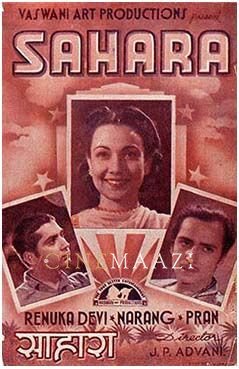
Sahara 1943
-
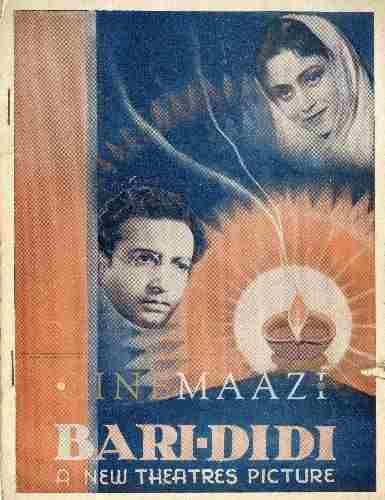
Bari Didi 1939
-

Bhabi 1938
-




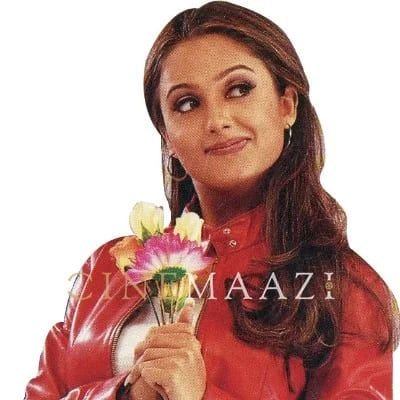
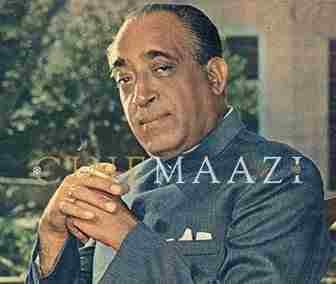

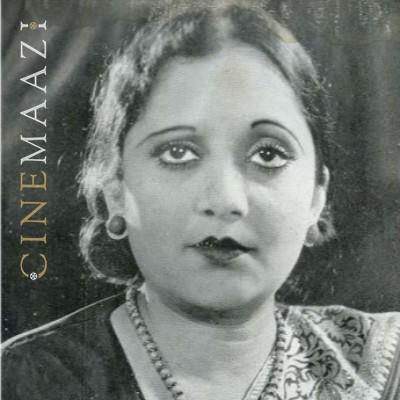
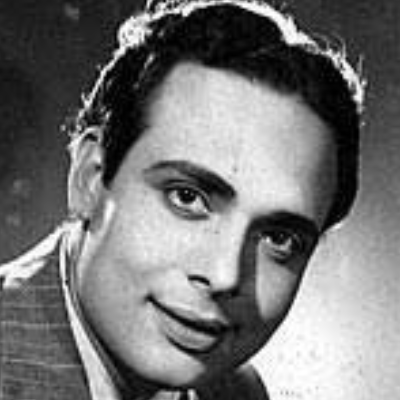

.jpg)



